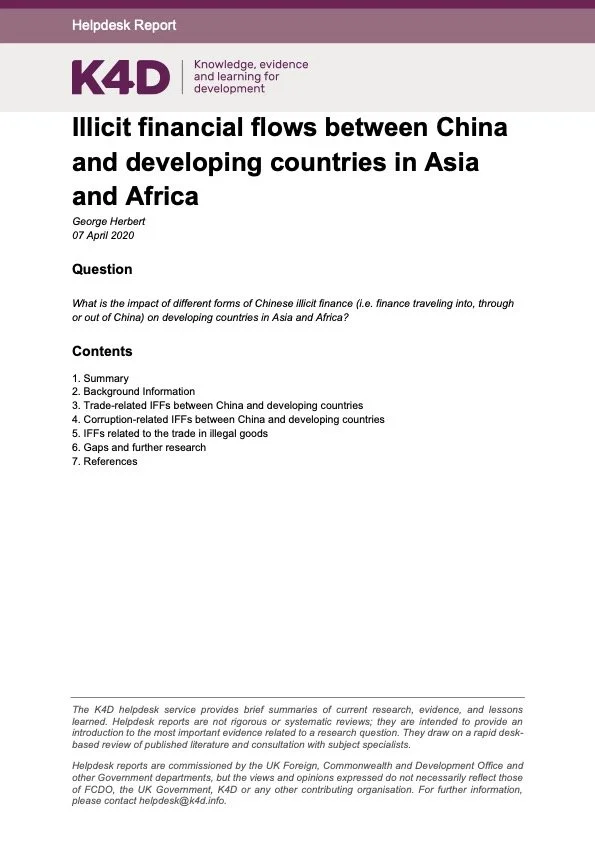By G. Herbert
This review provides a summary of the evidence on Illicit Financial Flows (IFFs) between China and developing countries in Africa and Asia. Specifically, it looks at the evidence on how IFFs to and from China impact on developing countries, as well as on the drivers of IFFs and of how flows are facilitated. The review draws upon a combination of academic and grey literature sources, though it is not exhaustive and only draws upon English language sources. IFFs involving China have attracted particular attention, due to estimates suggesting it is responsible for the largest IFFs by value globally. However, little has been published to date specifically on IFFs between China and developing countries. This paper attempts to help address this gap. Section 2 provides some background information on the debates and uncertainties around IFFs, including conceptual issues, difficulties in measuring these flows, and their potential impacts, as well as attempts to quantify China’s overall IFFs. Section 3 focuses on trade-related IFFs between China and developing countries in Asia and Africa. Discrepancies indicative of potential IFFs are identified using trade data from 2018 and an attempt is made to determine the scale of the revenue consequences of trade is-invoicing for China’s developing country partners. Section 4 considers IFFs-related to corrupt business practices, focusing largely on Chinese investment in Africa. Section 5 moves on to consider IFFs that relate to the trade in illegal products, including illegal narcotics, human trafficking, the illegal arms trade, the illegal wildlife trade, the illegal organ trade, and the trade-in counterfeit products. Finally, Section 6 discusses enabling environment factors relevant to IFFs between China and developing countries.
K4D Helpdesk Report.
Brighton, UK: Institute of Development Studies. 2020. 37p.





















